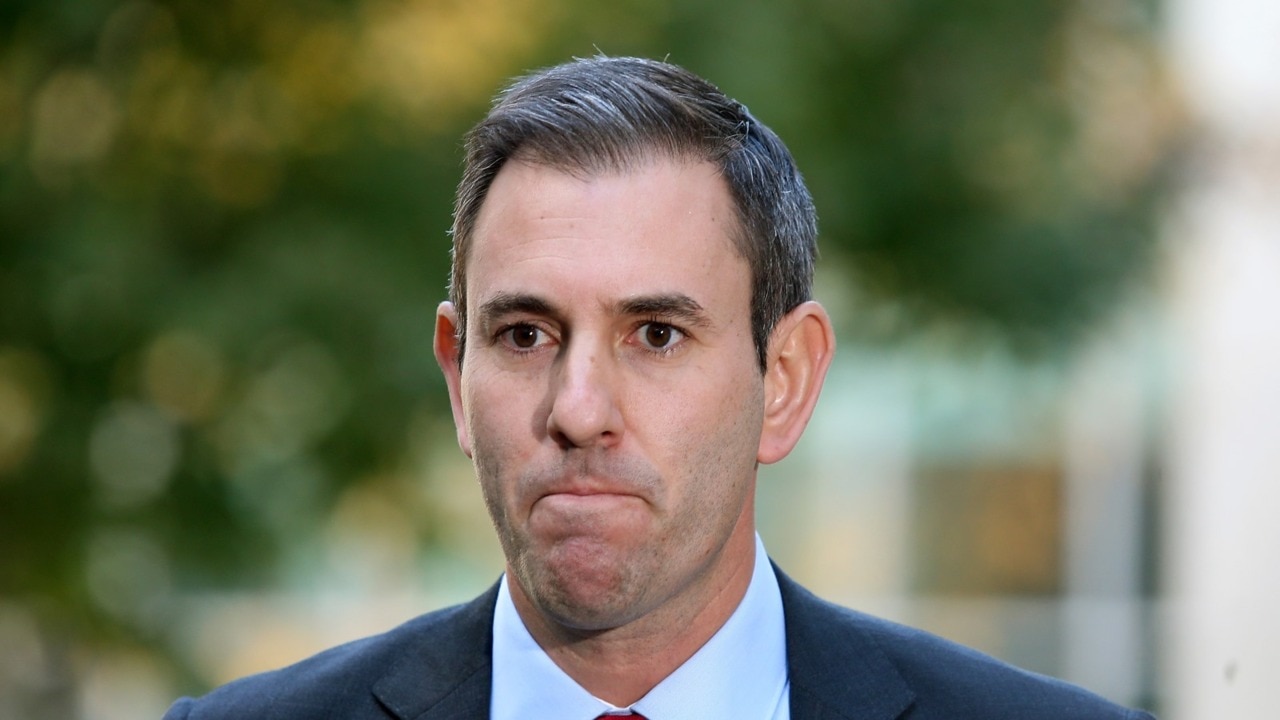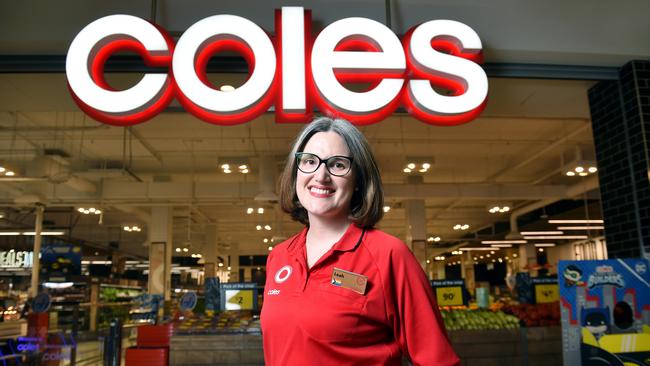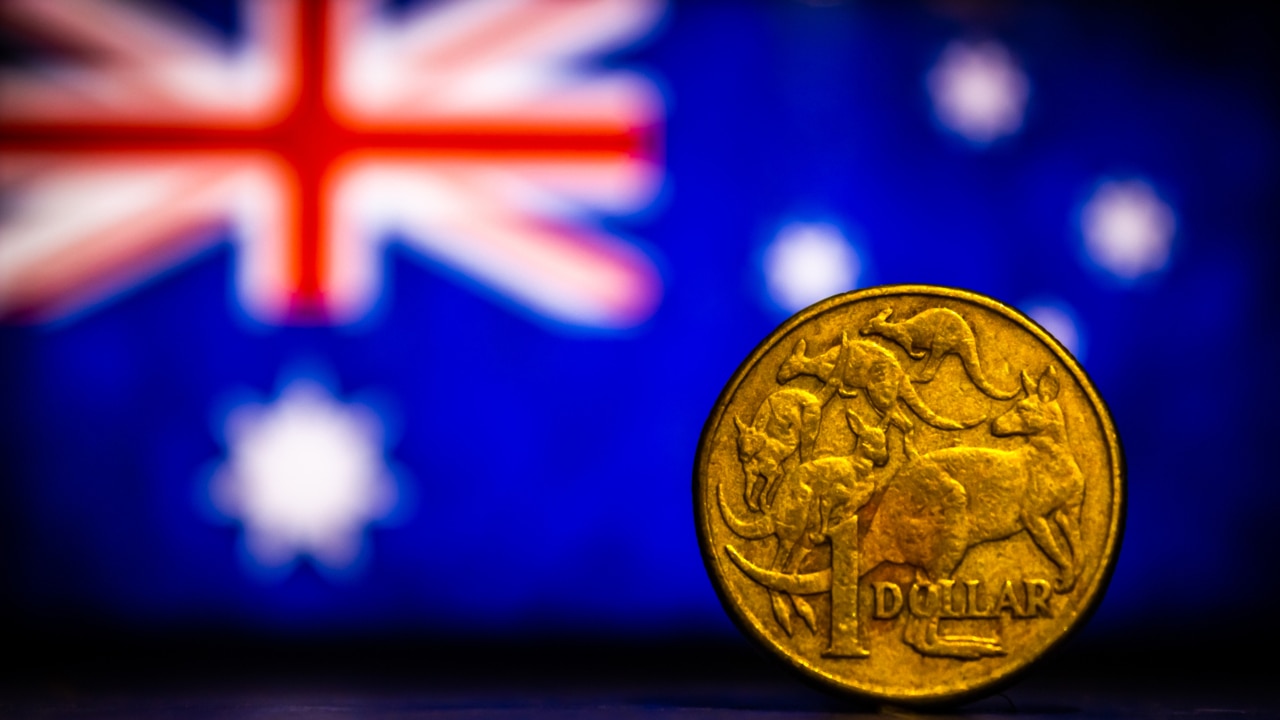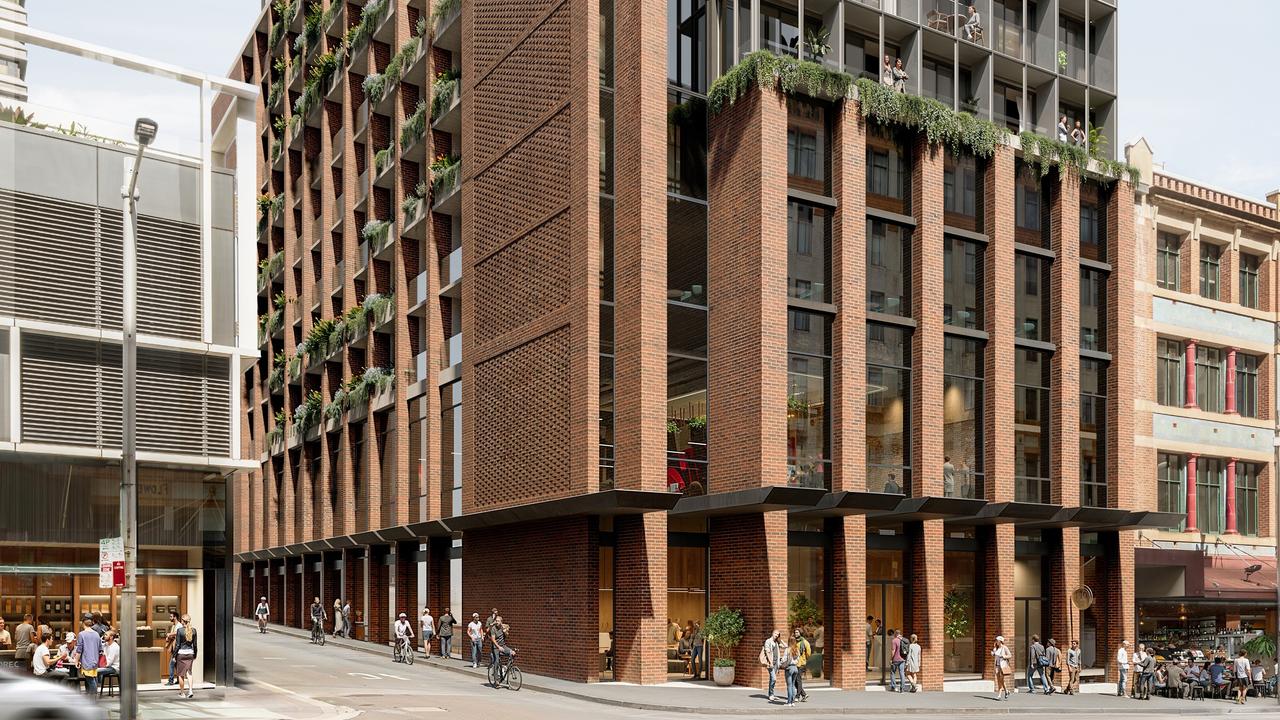Coles boss Leah Weckert in baptism of fire as earnings miss targets, shares slide
Newly minted Coles boss Leah Weckert has had a rough first reporting season, as rising costs sent its shares to their worst one-day losses since 2020.

Business
Don't miss out on the headlines from Business. Followed categories will be added to My News.
Only three months into her new role, Coles boss Leah Weckert has had a baptism of fire for her first reporting season, as an underwhelming profit result and cost blowouts triggered the biggest fall in Coles shares since the pandemic outbreak in 2020.
Delivering the supermarket giant’s full-year results, the former Coles chief financial officer laid out her strategic plans for the year ahead and views of the food and grocery landscape, but analysts and investors were more focused on the bottom line amid fears worsening profitability in the June half would spill into 2024.
Described by one analyst as a “messy result”, Coles revealed rising costs from a massive spike in store theft, higher wages and costly delays in the construction of its automated fulfilment centres. At the core of investor panic was the fact that inflated costs at Coles had slashed profit margins even as sales lifted through the year.
Coles looks to have hit a brick wall since January. Analysts estimated that gross profit margin fell 200 basis points in the second half as the cost of doing business, which includes higher wages, superannuation benefits and a 20 per cent lift in stock losses (which covers store theft), was up as much as $332m compared to the second half of 2022. The recent increase in Victorian payroll tax is estimated to have an impact of about $20m per annum, while Coles last week announced costly delays to its commissioning of two automated fulfilment centres.
Originally said to cost $150m when former Coles boss Steven Cain signed the deal with British tech company Ocado in 2019, the Coles robotic warehouses are now likely to cost as much as $400m and be delayed by as much as a year. As Ms Weckert – who oversaw the supermarket for the last two months of fiscal 2023 – went through her first presentation to the market as CEO, shares in Coles tumbled.

The stock ended at its low for the day of $16.01, down $1.22 or 7.08 per cent, wiping more than $1.6bn from the supermarket’s market capitalisation.
It marked the biggest one-day fall since a 9.87 per cent drop in late March 2020 when Covid-19 lockdowns caused panic selling throughout the market.
Coles reported an annual profit of $1.098bn, up 4.8 per cent but below market consensus forecasts of around $1.124bn.
Profit from continuing activities fell 0.3 per cent to $1.042bn. Revenue for the period rose 5.2pc to $41.825bn.
The company declared a flat final dividend of 30c a share, payable on September 27.
Worryingly, despite rising food and grocery sales in the second half, there was a slide in margins for that business of around 60 basis points. It suggests that Coles earnings actually fell in the second half. With higher sales not flowing through to healthier profits, investors are worried stronger cost pressures heading into 2024 will persist and drag down profits further.
Some of the bearish sentiment now swirling around Coles is linked to worsening trading in the second half for its supermarkets divisions, where earnings were 9 per cent below consensus, according to some analysts.
Jarden analyst Ben Gilbert said the share price dive was directly linked to Coles missing consensus earnings and a softer performance in the second half, and that the weakness in its results had come from the supermarkets which were the key driver of valuation.
“And if you look at what’s behind the miss and how we can think about that going forward is costs are higher, theft is higher and both of those trends are going to continue until at least the first half of fiscal 2024, so people are starting to think about how to price that sort of risk in,” Mr Gilbert said.
“And then I think the other thing is the top line (sales) was still strong in the fourth quarter. I think sales were up 8 per cent in food, but margins still went backwards. Typically when you have stronger sales you get operating leverage, costs look to have offset that.
“So the question is what levels of sales do they need next year, can they grow next year.”
Meanwhile, Ms Weckert said Coles had seen the emergence of the “savvy shopper” who heavily researched prices, used online catalogues, loyalty points, frozen meals and bulk buys to eke out savings from their grocery budgets. She said younger families and people aged under 34 were under particular pressure and were much more focused on loyalty programs, doing infrequent shopping to create meal plans and sticking tightly to a budget as they counted the dollars and cents.

“What we are seeing is that across the board customers are economising in lots of different ways,” she said.
“We have seen more trade into areas in homebrand in a lot of staple areas, things like pasta and rice and the like has seen very, very strong growth in homebrand.”
The average household was now feeling the benefit of moderating inflation, but with fresh produce in deflation.
Total supermarket price inflation for the year was 6.7 per cent, having moderated in the second half. In the fourth quarter, total supermarket price inflation of 5.8 per cent was down from 6.2 per cent in the third quarter, with inflation in the fresh category of 2.3 per cent down by almost half from the previous quarter.
At its flagship supermarket arm, Coles recorded sales revenue of 6.1 per cent to $36.746bn, with growth in the second half up 7.7 per cent over the prior corresponding period, compared to 4.6 per cent in the first half. Volumes improved throughout the year, with volume growth moderately positive in the second half.
Online sales for the full year increased by 1.1 per cent to $2.8bn. Strong sales growth of 10.1 per cent was delivered in the second half, while sales in the first half declined by 6.6 per cent as Covid-19 behaviours normalised and some customers returned to shopping in store.
Supermarket earnings rose 2.9 per cent to $1.765bn.
Liquor sales revenue was broadly flat at $3.61bn, due to cycling Covid-19 elevated demand in the prior year.
Earnings fell 3.7 per cent to $157m.
More Coverage
Originally published as Coles boss Leah Weckert in baptism of fire as earnings miss targets, shares slide





